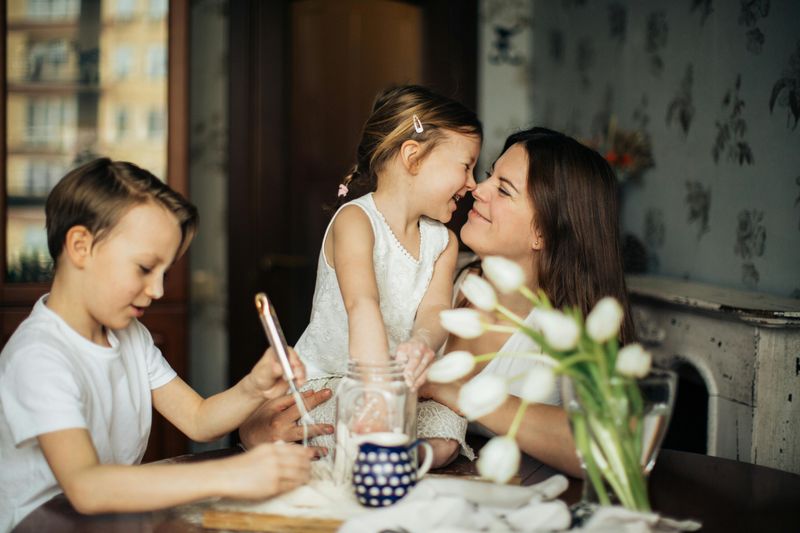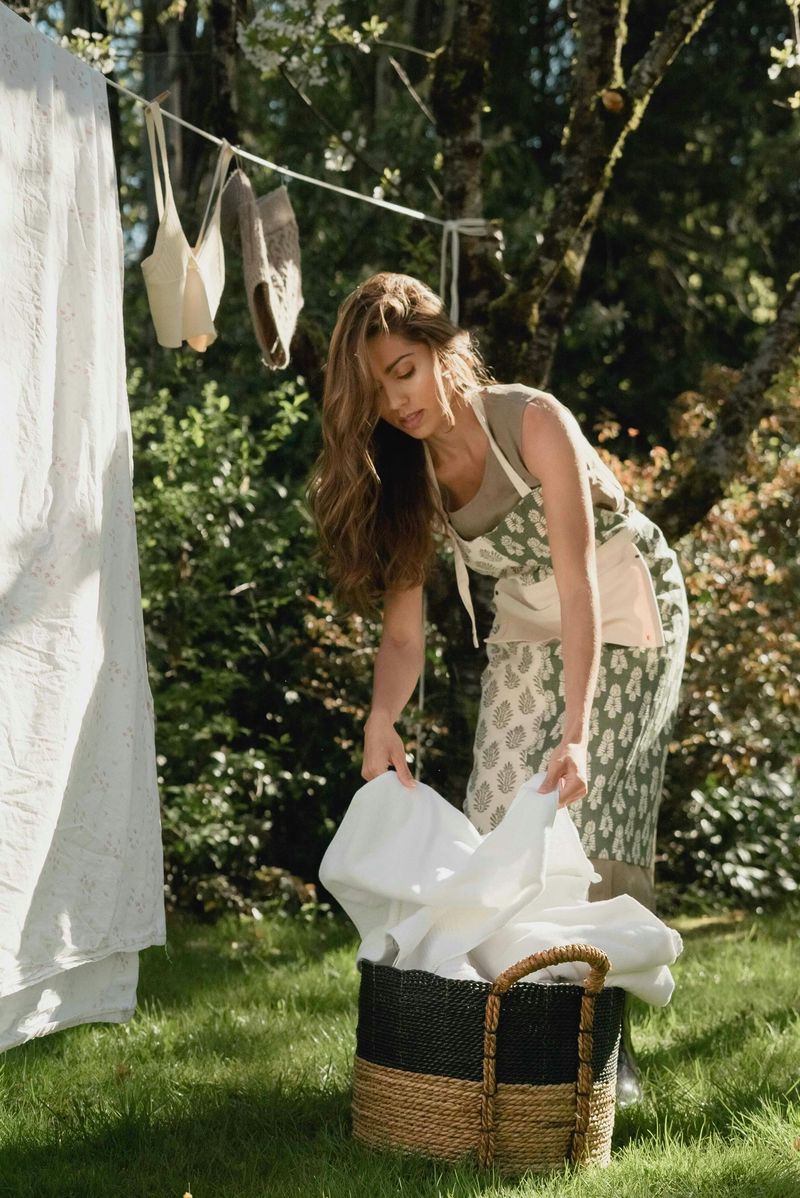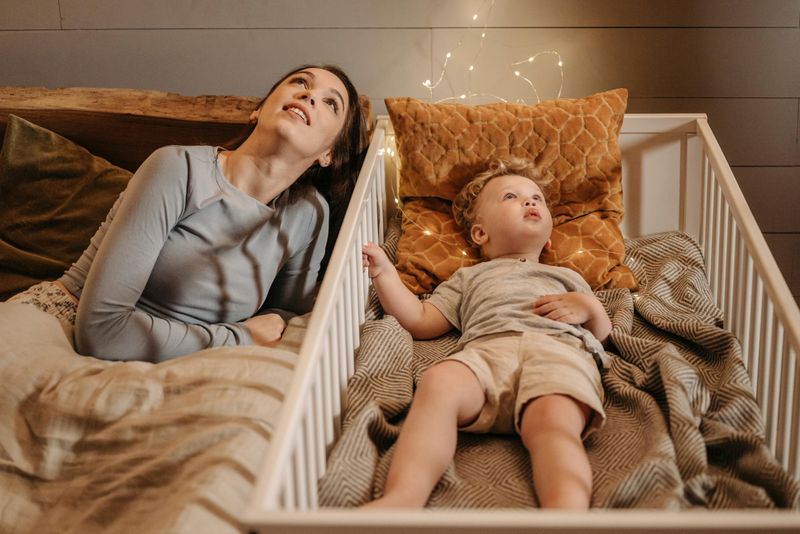13 Hidden Reasons Women Start Resenting Their Husbands After Having Children

Having children changes everything in a relationship. While bringing a new life into the world is beautiful, it often reshapes the dynamics between partners in unexpected ways. For many women, what starts as minor frustrations can slowly transform into deep-seated resentment toward their husbands. Understanding these hidden triggers is the first step to addressing them before they damage the foundation of a marriage.
1. Unequal Distribution of Labor

The daily grind of parenthood reveals true partnership inequalities. When moms handle endless diaper changes, meal preparations, and bedtime routines while dads “babysit” their own children, the scales tip dangerously. Research shows women perform an average of 21 hours more unpaid work weekly than men after having children.
This silent burden accumulates like interest on debt—small daily imbalances become massive emotional deficits over time. Many mothers report feeling like household managers rather than equal partners, constantly delegating tasks that should be automatically shared. This invisible work becomes a constant reminder of inequality in what should be life’s most equal partnership.
2. He Gets to Be the ‘Fun Parent’

Dad swoops in for weekend adventures and bedtime stories, earning instant hero status from the kids and admiring glances from strangers. Meanwhile, mom handles the vegetables-versus-candy battles, homework supervision, and doctor appointments that form the unglamorous backbone of childrearing. The “fun dad” phenomenon creates a particularly painful dynamic where children naturally gravitate toward the parent who enforces fewer rules.
Mothers often become the disciplinarians by default, making difficult parenting choices that prioritize long-term wellbeing over immediate happiness. This imbalance leaves many women feeling like the bad cop in their own family story—resented by their children and underappreciated by husbands who don’t recognize the emotional toll of always being the responsible one.
3. She Feels Like a Single Parent—While Married

The wedding ring on her finger feels like a cruel joke some days. Despite technically having a partner, many mothers navigate the parenting journey with shockingly little support, making all decisions and handling all crises alone. When dad is physically present but mentally absent—absorbed in work emails during family dinner or unable to handle basic childcare tasks independently—the loneliness can be crushing.
The emotional abandonment stings worse than actual single parenthood because the promise of partnership remains unfulfilled. Many women report their breaking point comes not during major life events but in small moments: realizing they haven’t showered in days while their husband enjoys uninterrupted gym sessions, or handling a sick child alone while he sleeps soundly through the night.
4. He Doesn’t See What Needs to Be Done

“Just tell me what to do and I’ll help!” These seemingly innocent words reveal a fundamental misunderstanding of partnership. The mental load—that invisible work of remembering, planning, and organizing family life—becomes mom’s exclusive territory while dad waits for instructions. She tracks pediatrician appointments, notices when children outgrow clothes, remembers grandma’s birthday, plans meals around everyone’s preferences, and orchestrates the family’s social calendar.
Each mental task is small, but collectively they create a crushing cognitive burden. This blindness to household needs forces women into an unwanted manager role, transforming what should be partnership into a boss-employee dynamic. The resentment deepens each time she must explicitly request help with tasks any observant adult should notice.
5. Emotional Support Is Nowhere to Be Found

New motherhood unleashes a tsunami of emotions—joy, fear, inadequacy, and overwhelming love crash together in confusing waves. When a husband remains emotionally distant during this vulnerable transition, the isolation cuts deep. Many women describe feeling like their emotional worlds expanded exponentially with motherhood while their partners continued operating with the same emotional bandwidth as before.
Simple acknowledgments like “This is hard” or “You’re doing amazing” can make all the difference between feeling seen and feeling utterly alone. The absence of emotional support creates a particularly painful paradox: at the exact moment when a woman needs unprecedented emotional connection, her partner often becomes less attuned to her inner world, focused instead on practical matters or his own adjustment to parenthood.
6. He Still Expects the Old Version of Her

Motherhood transforms a woman’s identity, priorities, and even her physical body—yet many husbands seem to expect their pre-baby wife to return unchanged. Comments about weight, decreased interest in previous hobbies, or changed sexual desires reveal a fundamental misunderstanding of the metamorphosis motherhood requires.
Her body has stretched, leaked, nourished, and healed. Her mind has expanded to hold the constant awareness of another human’s needs. Her heart has grown and broken a thousand times over with newfound maternal love and worry. When husbands fail to recognize and honor this profound transformation, women feel erased—as if their greatest life journey is viewed as a temporary inconvenience rather than the fundamental identity shift it truly represents.
7. He Doesn’t Step Up at Night

Sleep deprivation isn’t just uncomfortable—it’s a scientifically proven form of torture. Yet countless mothers endure months or years of fragmented sleep while their partners enjoy uninterrupted rest beside them. The 3 a.m. feed becomes a lonely ritual where exhausted mothers stare into the darkness, acutely aware of their partner’s peaceful breathing nearby.
Each ignored baby cry or “I didn’t hear him” excuse adds another brick to the wall of resentment being built in the dark hours of early parenthood. Beyond the physical exhaustion lies a deeper wound: the feeling that her basic human need for rest is considered optional while his remains sacred and protected. This fundamental inequity during vulnerable nighttime hours often becomes the seedbed where serious relationship resentment takes root.
8. Intimacy Feels One-Sided

Physical intimacy after childbirth involves navigating a completely transformed body, hormonal shifts, and new emotional landscapes. Many women feel pressured to “bounce back” before they’ve healed physically or adjusted emotionally to motherhood.
Touch becomes associated with demands rather than connection, creating a negative cycle where even affectionate gestures feel loaded with expectation. Women crave intimate connection that acknowledges their new reality—gentle physical affection without pressure, emotional vulnerability, and partners who understand that desire might require different nurturing now. When these needs go unrecognized, physical intimacy becomes another battlefield rather than a sanctuary.
9. She’s Lost Herself—and He Doesn’t Notice

Remember that woman who loved painting, had strong opinions about politics, and always made everyone laugh? She’s still in there somewhere, beneath the mountain of laundry and endless to-do lists of motherhood. Many mothers describe the heartbreak of watching their personal passions, career ambitions, and social connections slowly disappear while their partners’ lives remain relatively unchanged.
The identity crisis intensifies when husbands fail to notice this gradual disappearing act or, worse, seem relieved by her total focus on family. The deepest resentment often stems not from the sacrifices themselves but from having these sacrifices go unacknowledged, unappreciated, or treated as the expected default for mothers but optional for fathers.
10. He Expects Praise for Basic Parenting

“You’re so lucky your husband helps with the kids!” This well-meaning comment from friends reveals the painfully low bar set for fathers. Meanwhile, a mother performing the exact same tasks receives no recognition whatsoever. The societal double standard becomes a personal wound when husbands expect lavish gratitude for handling basic childcare tasks.
Many women report simmering resentment when their partners seek praise for a single diaper change while their own daily marathon of childcare goes completely unremarked upon. This praise imbalance reinforces the dangerous idea that fatherhood is optional involvement while motherhood is mandatory dedication. The resulting dynamic positions dad as the generous helper rather than an equally responsible parent, undermining the very concept of partnership.
11. Financial Pressure and Control

Money dynamics shift dramatically after children arrive, especially if one parent reduces working hours or leaves their career entirely. What begins as practical financial decisions can evolve into uncomfortable power imbalances that breed deep resentment. Many stay-at-home or reduced-schedule mothers report feeling financially dependent in ways they never anticipated.
Simple purchases become sources of tension, requiring permission or explanation despite the enormous economic value of the childcare and household management they provide. The resentment compounds when husbands fail to recognize that childcare is work—unpaid but economically valuable labor that enables their continued career advancement. This financial dimension of parenthood often reveals previously hidden values and expectations about gender roles that can shake a relationship’s foundation.
12. He Doesn’t Defend Her—Even to His Own Family

“That’s just how my mother is” becomes the battle cry of husbands unwilling to stand between their wives and critical in-laws. This battlefield abandonment leaves women fighting family battles alone while simultaneously caring for children. Unsolicited parenting advice, criticism of breastfeeding choices, or comments about the house’s cleanliness become attacks not just on her parenting but on her core identity as a mother.
When husbands remain silent witnesses rather than active defenders, women feel fundamentally unprotected in their most vulnerable role. This failure to create boundaries with extended family signals a devastating message: keeping peace with his family of origin matters more than protecting his partner’s emotional wellbeing. Few relationship wounds cut deeper than this perceived betrayal of primary loyalty.
13. The Loneliness of Invisible Sacrifices

Behind closed bathroom doors, many mothers secretly weep from a profound loneliness that paradoxically comes from never being alone. The constant physical demands of small children combined with emotional isolation from an uncomprehending partner creates a uniquely painful experience.
Women make hundreds of tiny sacrifices daily—skipping showers, eating cold food, postponing doctor appointments, abandoning personal goals—that individually seem insignificant but collectively represent a profound self-erasure. When husbands fail to notice these daily surrenders while protecting their own needs and routines, the inequity becomes impossible to ignore. The most heartbreaking aspect isn’t the sacrifices themselves but having them go completely unseen by the one person who promised to walk through life as an equal partner.

Comments
Loading…